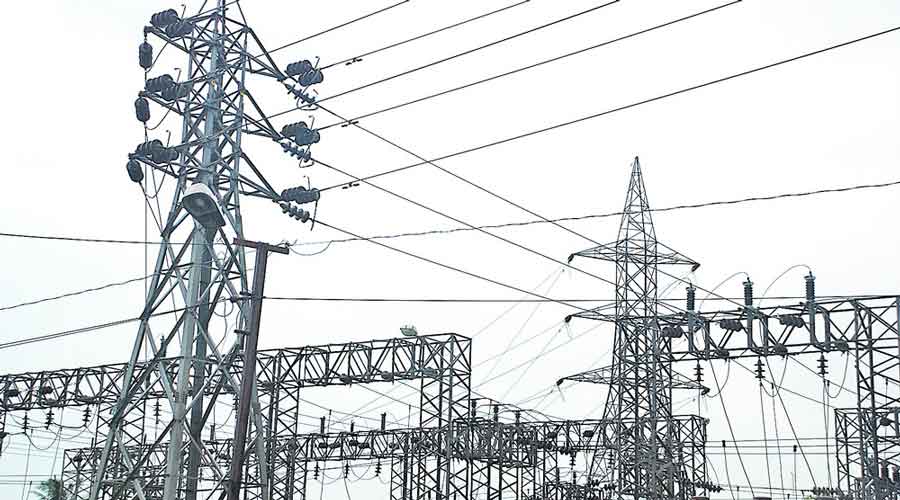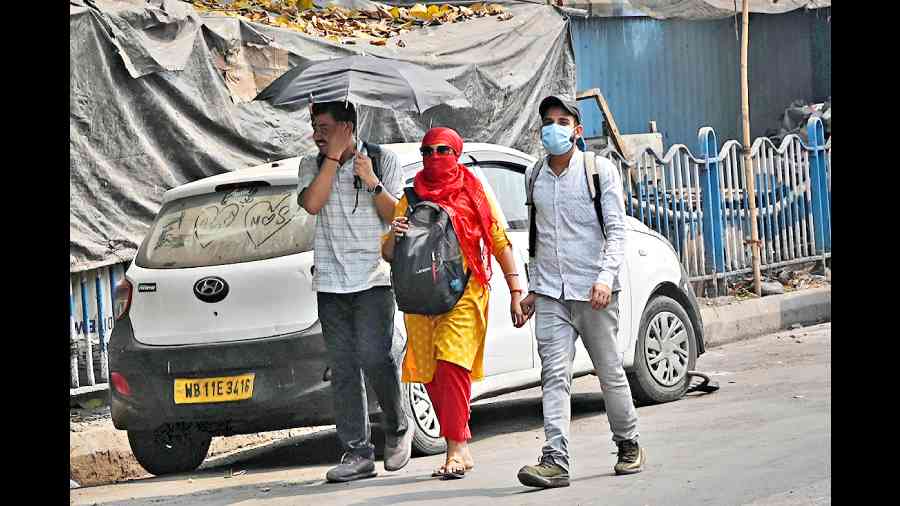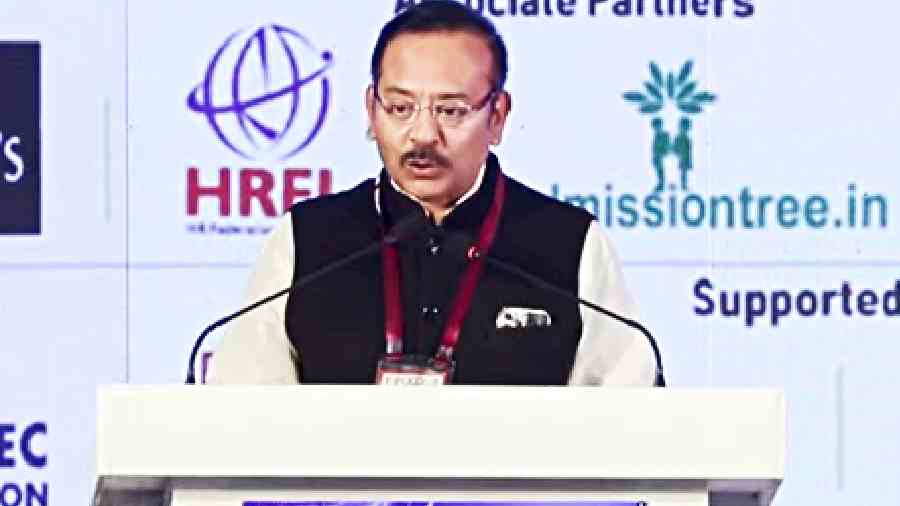Parts of Kolkata have been suffering from frequent power cuts in what has been the hottest spell in several years in the city.
Power utility CESC has blamed the “use of appliances beyond the sanctioned load” for the agony.
A message from the utility, delivered to consumers on Tuesday evening, said: “Our city is facing unprecedented heat wave. We appeal to all consumers for judicious use of electrical appliances, to restrict extreme overloading of electrical network and help us serve better (sic).”
Many Kolkatans have been wondering what “overload” or “judicious use of electrical appliances” means. Does it mean I can buy an air-conditioner but not use it when I want?
The Telegraph tried to find answers to this and other similar questions. Based on discussions with CESC officials, here’s what we found out.
Q: What does overload mean?
A: It means consumption beyond a sanctioned load. The sanctioned load is the volume of power approved against a particular meter.
“It is decided at the time of installation of the meter, based on the number of electrical appliances that would be in use. A consumer can apply for a load extension in the future,” said Avijit Ghosh, executive director, CESC.
But in many homes in Kolkata, the meter was installed many years ago. An ordinary user is not expected to know how many appliances and hours of use will lead to overload.
Q: How do I know what is my sanctioned load?
A: The load (in kVA, or kilovolt-ampere) is printed on the bill, below the “BILL DETAILS” header.
“Our website has all the details of power consumption of different appliances,” Ghosh said.
But multiple steps await an ordinary user who wants to have a sense of his consumption pattern.
The hyperlink, https://www.cesc. co.in/energyCalculator, or just keying in the words “CESC energy calculator” on a search engine will lead a user to a page where a red table offers several options. Select “power consumption guide” and you will be led to another page which lists 30 appliances.
ACs eat maximum energy, the chart showed.
A 1.5tonne split AC consumed 15kWh (kilowatt-hour) if used for six hours, according to the guide, which has similar usage information on other appliances.
A 286-litre fridge, running for 18 hours, consumes 9kWh.
Q: How long can I run an AC?
A: As long as you want, provided the number of ACs in the home is in keeping with your meter’s capacity.
How many ACs can a meter support is printed on the bill, between the last payment details and the graph showing the past six months’ consumption pattern. “Your meter (20A) can cater one AC without meter upgradation,” is an example.
“20A here means 20 amperes. One AC here means a 1.5 tonne machine,” said a CESC official.
If your meter can cater to one AC and you are using one AC, you can use it as long as you want every day, said officials.
“There is no limit on using the AC if you are within the prescribed limit. You can run it the entire day,” said Ghosh.
Q: How does overload cause power trips?
A: Use of excessive appliances whose load is beyond the sanctioned load of a consumer’s meter could lead to tripping of the power supply to his or her home, said CESC officials.
Several people doing the same in a neighbourhood can trip the power of the entire area.
“There is no problem with power consumption within the sanctioned load. Areas where people have been consuming more power than the sanctioned load are usually facing problems. It depends on the discipline of the users in a particular area,” said Debasish Banerjee, managing director (distribution), CESC.
Haridevpur, Beleghata and Jadavpur are some of the areas from where power outages have been reported. In all these areas a large number of residential apartments have come up in the past two decades. The power consumption pattern has also changed accordingly, said a source in the utility.
In many pockets, people are installing two ACs even if the meter can support one. As use of ACs has risen manifold because of the blistering heat, the chances of power tripping has gone up, too, said an official. “Often, a consumer does not intimate us before installing an additional AC. That is risky,” an official said.
Q: I want to file an application to install an additional AC. How long does it take?
A: According to CESC officials, priority is given to AC-load extension applications and the maximum time needed for processing an application and extending the load is 48 hours. “For other appliances, it may take three-four days,” an official said.
Q: Can legal action be taken against people who are consuming power beyond their sanctioned load?
A: Banerjee said it was not CESC’s intention to penalise anyone or to disconnect their power supply for consuming power beyond the sanctioned load.
“We can only appeal to our consumers. It is their moral responsibility to ensure that no one else is inconvenienced because of them,” he said.
CESC officials said consumers should remember that an overload not only endangers their home’s wiring and appliances but can also damage the local power network and disrupt supply to the entire neighbourhood.
Q: How high is the demand for power?
A: “Around 3.30pm on Tuesday, the demand soared to 2,503MW in CESC area, the highest-ever,” said Ghosh.


